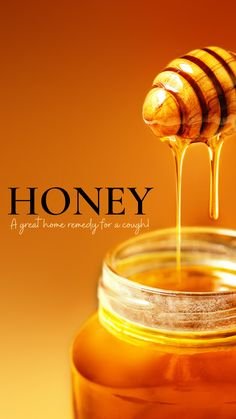In today’s fast-paced world, staying updated with current events is crucial for individuals and businesses alike. One way to stay informed is through reliable news sources that offer comprehensive coverage of local and international events. When it comes to the latest updates on the news today NWBKA, there’s a significant focus on the topics surrounding technology, politics, and lifestyle. This article will dive deep into the most recent news today NWBKA, providing insights into the important happenings, developments, and trends that are making waves.
Table of Contents
What is NWBKA?
Before diving into the news today NWBKA, it’s important to understand what NWBKA stands for. The acronym NWBKA is commonly associated with the National Working Beekeepers Association, an organization dedicated to the welfare of bees and beekeepers in the United Kingdom. The association plays a pivotal role in ensuring that beekeepers have the necessary resources, education, and support to manage their colonies effectively and sustainably. They also advocate for environmental policies that protect bees, which are critical to global biodiversity and food security.
The news today NWBKA often revolves around the challenges faced by beekeepers, such as colony collapse disorder, the impact of pesticides on bee populations, and the promotion of sustainable beekeeping practices. By keeping track of news today NWBKA, individuals can learn more about the latest trends in beekeeping and the importance of preserving these essential pollinators.
The Impact of Beekeeping on the Environment
As we explore the news today NWBKA, it is essential to understand the environmental significance of beekeeping. Bees play a crucial role in pollinating plants, which is necessary for the production of fruits, vegetables, and many other crops. According to recent studies, bee populations have been declining at an alarming rate, which has caused concerns within both the agricultural and environmental communities.
The news today NWBKA sheds light on various environmental initiatives and campaigns that aim to protect bee populations from harm. These include advocacy for pesticide-free farming practices, the creation of bee-friendly habitats, and raising awareness about the importance of bees in food production. With the rise of climate change and deforestation, beekeepers and environmentalists are working together to combat the many threats facing bee populations.
Challenges Faced by Beekeepers

One of the key focuses of news today NWBKA is the ongoing challenges faced by beekeepers. Whether it’s managing the health of their hives or adapting to changing weather conditions, beekeepers are constantly innovating to ensure the survival and productivity of their colonies. Among the most pressing issues discussed in the news today NWBKA is the phenomenon known as colony collapse disorder (CCD).
Colony collapse disorder refers to the sudden disappearance of worker bees from a hive, leaving behind the queen and immature bees. This disorder has puzzled scientists for years, with potential causes ranging from pesticides to poor nutrition. The news today NWBKA frequently features research findings, solutions, and new techniques to address CCD, highlighting the ongoing efforts within the beekeeping community to tackle this issue head-on.
Another pressing concern discussed in news today NWBKA is the risk of diseases such as American Foulbrood (AFB), a bacterial infection that can wipe out entire colonies if not properly managed. Beekeepers must remain vigilant in detecting and treating diseases, often requiring specialized knowledge and tools to safeguard their hives. As part of their mission, the NWBKA provides beekeepers with the necessary information and support to mitigate such risks.
Advances in Beekeeping Technology
Technology has also made its way into the world of beekeeping, and news today NWBKA often highlights new technological innovations designed to help beekeepers improve the health and productivity of their hives. From automated monitoring systems that track hive temperature and humidity to advanced pest control technologies, beekeepers now have access to cutting-edge tools that can improve their practices.
One of the most significant technological advancements in recent years is the development of smart beekeeping tools that use artificial intelligence (AI) to monitor the health of bee colonies. These systems use sensors to detect unusual behavior in the hive, such as a decrease in activity or changes in the sound of the bees, which can be early indicators of health problems. The news today NWBKA frequently features stories on how these technologies are helping beekeepers prevent disease outbreaks, monitor hive conditions remotely, and increase the overall success of their operations.
Additionally, there has been an increase in research focused on developing more efficient, eco-friendly methods for managing bee health. This includes the use of organic treatments and non-toxic pesticides that are less harmful to bees, as well as the creation of more sustainable beekeeping practices that minimize the environmental footprint of honey production.
The Role of NWBKA in Promoting Sustainable Practices
One of the central missions of the news today NWBKA is the promotion of sustainable beekeeping practices. Sustainable beekeeping is crucial not only for the well-being of the bees but also for the health of the planet. The NWBKA works to ensure that beekeepers are following best practices that reduce the environmental impact of their operations. This includes using organic methods for controlling pests and diseases, maintaining natural forage for bees, and reducing the carbon footprint of beekeeping.
The news today NWBKA also emphasizes the importance of educating the public about sustainable practices. Through workshops, seminars, and publications, the NWBKA provides valuable information to both experienced beekeepers and those new to the field. This education is crucial in fostering a community of responsible beekeepers who understand the vital role that bees play in our ecosystems and food production systems.
Trends in Honey Production and Marketing

Honey production is a significant aspect of beekeeping, and news today NWBKA regularly reports on the latest trends in honey production and marketing. As consumers become more interested in natural and organic products, the demand for high-quality honey has increased. Beekeepers are responding by producing a variety of honey types, such as raw honey, organic honey, and honey with specific floral notes, depending on the types of flowers the bees pollinate.
The news today NWBKA also covers the challenges that beekeepers face in marketing their honey. With the growing interest in local, sustainable products, there is an increasing competition among honey producers to stand out in the marketplace. The NWBKA often provides resources and guidance on how beekeepers can effectively market their products, from branding and packaging to direct sales at farmers’ markets and through online platforms.
In addition to honey, other bee-related products such as beeswax, royal jelly, and propolis are also gaining popularity. The news today NWBKA highlights the growing market for these products and how beekeepers are diversifying their offerings to meet consumer demand. This trend not only increases the profitability of beekeeping but also helps ensure that beekeepers can remain financially sustainable despite the challenges posed by factors such as climate change and fluctuating honey prices.
Government Policies and Advocacy
Government policies play a significant role in shaping the landscape for beekeepers, and news today NWBKA frequently reports on relevant policy changes, advocacy efforts, and regulations that impact the industry. Beekeepers rely on government support to help mitigate the risks associated with their work, such as compensation for losses due to diseases or environmental factors.
The news today NWBKA often covers how the association advocates for stronger protections for bees, including lobbying for stricter pesticide regulations, better funding for research into bee health, and the implementation of policies that promote biodiversity. The NWBKA’s advocacy efforts aim to raise awareness about the crucial role bees play in the environment and the economy, emphasizing the need for greater action to protect them from ongoing threats.
Future Outlook for Beekeeping
As we look ahead, the future of beekeeping remains uncertain, but there is hope. The news today NWBKA highlights the collective efforts of beekeepers, environmentalists, researchers, and policymakers to ensure that bee populations continue to thrive. The development of new technologies, sustainable farming practices, and a growing public awareness of the importance of bees provides a solid foundation for the future of beekeeping.
The news today NWBKA continues to serve as a vital source of information, offering beekeepers and the public an up-to-date look at the trends, challenges, and innovations shaping the beekeeping industry. As we move into the future, it is crucial that we continue to support efforts to protect bees and ensure that beekeeping remains a viable and sustainable practice for generations to come.
Also read Dallas Cowboys vs New York Giants Match Player Stats: A Detailed Breakdown
Conclusion
The news today NWBKA offers an insightful look into the world of beekeeping, from the challenges faced by beekeepers to the innovative solutions being developed to protect bees and sustain honey production. As the importance of bees in global ecosystems becomes ever more apparent, staying informed about the latest news today NWBKA is key to understanding how we can all contribute to preserving these essential pollinators. By supporting sustainable beekeeping practices, advocating for stronger environmental protections, and staying updated on the latest trends, we can all play a role in ensuring a healthy future for bees and the planet.


